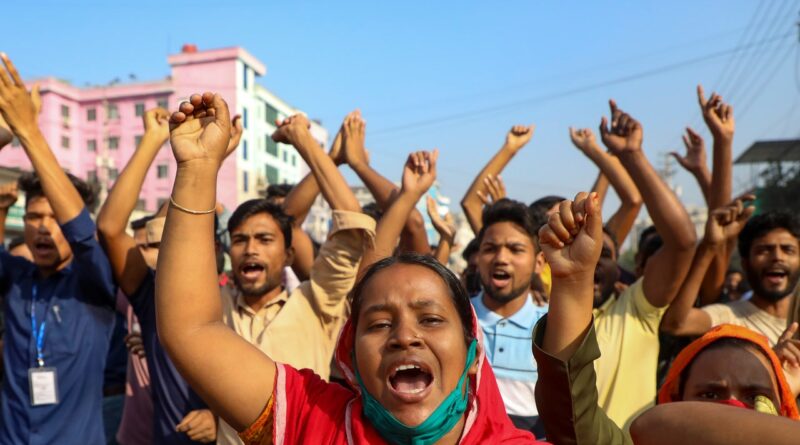In Bangladesh Garment Worker Wages Were Increased to $112 a Month, They Are Demanding More
Over 5,000 garment workers in Bangladesh are protesting the current minimum wage in the country. Tasmin Kurien of the Asia Floor Wage Alliance tells Teen Vogue that 70% of those protesting are women.
For months, workers have been calling on the government and factory owners to raise their wages from 8,300 taka, or $75 a month, to 23,000 taka, or $205 a month. When the Bangladesh Garment Manufacturers and Exporters Association initially offered to increase the wages to $90, the protests began. The last wage increase was in 2018.
On November 7, the association came back with an increased offer of 56.25% (12,500 taka, or $114 a month). Kalpona Akter of the Bangladesh Garment and Industrial Workers Federation told Al Jazeera that the offer was “very frustrating,” adding “we can’t accept it.”
Taniya Begum, a garment worker who has been protesting for the minimum wage increase, tells Teen Vogue that workers are fighting for a wage that is in line with inflation and the rising cost of living. “We cannot afford a healthy life for our children. We cannot ensure enough nutritious food with the present wage,” she says via Zoom. Most workers, she continues, choose to work overtime to make ends meet, even when, according to Begum, some factories don’t honor those extra hours — another reason why protesters have decided to take a stand.
Teen Vogue has reached out to Denim Asia Ltd., a factory that employs several protesting workers, for comment.
On Wednesday, at least one worker was killed during the protests, and several others were injured in a clash with police, according to Reuters.
Bangladesh is one of the largest hubs of garment factories in the world, second only to China. An estimated 4 million workers are employed in Bangladesh’s garment business, making clothing for popular brands like H&M, Abercrombie & Fitch, Adidas, Levi Strauss, Lululemon, and Inditex, which owns Zara.
In October, 16 brands sent a letter to the prime minister asking for a proper review of wages. “The consultations should seek to raise the minimum wage to a level that corresponds with a wage level and benefits that are sufficient to cover workers’ basic needs and some discretionary income and takes into account inflationary pressures,” the letter states.




